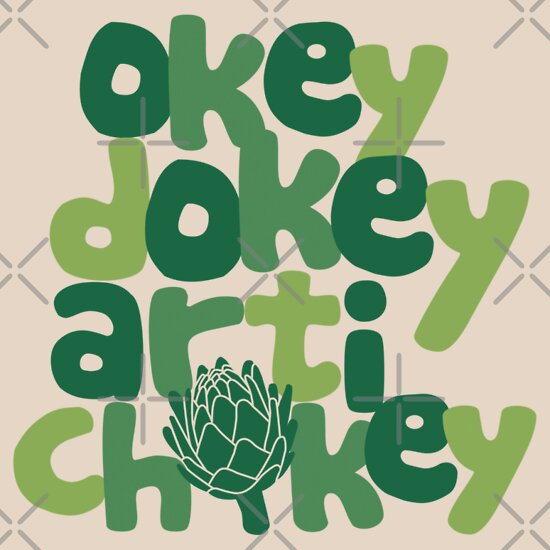Okey-dokey! The story of the birth of OK’s playful grandchild
By the early twentieth century, OK was no longer a joke. The letters O and K did not prompt memories of the misspelled oll korrect, nor did they stimulate alternative explanations. In the nineteenth century, OK was recognized as a humorous abbreviation, but in the twentieth, it was understood merely as an arbitrary combination of letters of the alphabet.The very look of OK underwent a change. In the nineteenth century, OK almost always appeared with periods, identifying it as an abbreviation. In the twentieth, however, the periods increasingly were absent. And in the twentieth century, more and more it was spelled okay, completely distancing it from any abbreviation and transforming it into an ordinary word.
The meaning of OK was simplified in the twentieth century too. Almost from the date of its birth, in the nineteenth century the abbreviation OK was subject to reinterpretation, beginning with Old Kinderhook and continuing with numerous humorous inventions, as well as the names of clubs. As the twentieth century got under way, those alternatives faded, leaving OK for the most part with the plain, sober definition “all right.” Gaining familiarity rather than passion, OK also gained the abbreviation oke in the 1920s, and kay or just plain k, both in writing (nowadays including text messages and e-mail) and speaking.
Along with the draining of humor from OK came the draining of enthusiasm, or indeed of any emotion. In 1840 the OK Clubs could inspire voters to support Old Kinderhook for reelection. The clubs formed later in the nineteenth century, from the Harvard OK on down, likewise kept OK spirited. In occasional literary use, OK often colorfully evoked the voice of a decidedly backwoods character. But by the early twentieth century, OK had become value-neutral. It remained affirmative, but it imparted no attributes, admirable or otherwise, as it remains today.
When a friend nowadays asks “What do you think of my garden?” to answer “OK” is likely to make the respondent the target of a flowerpot. You’d better use a value word like “wonderful” or “perfect”. Even “terrible” shows more emotional involvement than OK. So OK no longer was a joke or a showstopper. In the nineteenth century, OK stood out, but in the twentieth, OK was just OK.
To make OK funny in the twentieth century, or to give it emphasis, it needed a twist. And the Roaring Twenties came up with it—several twists, in fact. Beginning in the 1920s we find such twists as okey-dokey and oke-doke, leading up to the okely-dokely now used by cartoon character Ned Flanders on the television show The Simpsons.
The rise of okey-dokey and its relatives took away the pressure on OK to be funny. Once okey-dokey made its appearance, any vestige of humor associated with OK fled to its polysyllabic progeny, leaving OK free of all remaining traces of playfulness. We are inclined to smile when we hear okey-dokey; we hear plain OK with a straight face. The expression born as a blatant joke a century earlier had now become a sober workhorse, ready to undertake ventures in pragmatics and psychology in the postwar years.
The playfulness of okey-dokey is evident when it turns up as the name for a recipe in Fondue by Lenny Rice and Brigid Callinan, published in 2007. The artichoke fondue “Okey-dokey Artichokey” is to be paired with Austrian grüner veltliner, which “has a crisp, peppery quality that makes it one of the only reliable artichoke-friendly wines we know.”
Perhaps the name of the recipe was inspired by a children’s book published four years earlier, Okie-dokie, Artichokie! by Grace Lin. That’s the story of a new downstairs neighbor named Artichoke who bangs mysteriously on his ceiling, the protagonist’s floor. “Hey, if I get too loud or something, you can just bang on the ceiling and let me know,” says the protagonist, who happens to be a monkey. The downstairs neighbor is a giraffe, hence the inadvertent banging.
By now, okey-dokey (and variants like okely-dokely) has long lost its freshness—hence its suitability for a not-so-cool character like Ned Flanders. For some, it’s an annoyance. Slang expert Tom Dalzell, in The Concise New Partridge Dictionary of Slang and Unconventional English (2007), acknowledges that okey-dokey is “used for communicating agreement,” but he can’t resist grumbling that it is “an old-fashioned, affected, still popular perversion of OK.”
Edited extract from OK: The Improbable Story of America’s Greatest Word by Allan Metcalf. Published in Paperback by Oxford University Press in 2012.



OK Corral
SvarSlet